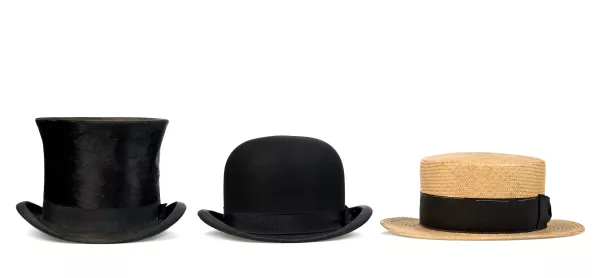- Home
- Bust ‘rich boys in top hats’ myth, private schools told
Bust ‘rich boys in top hats’ myth, private schools told

Private schools need to bust the “myth” that their pupils consist of “white, wealthy boys wearing a top hat”, the chief executive of the Independent Schools Council has warned.
Myth busting is a necessity for private schools now that the sector has been affected by “binary” political arguments, Julie Robinson said.
“It’s a shame that myth busting is necessary, but I think a lot of people complain that education has become overly politicised and this tokenism has affected independent schools and drawn them into this debate,” she told Tes.
Ms Robinson complained that the sector is up against a stereotype of independent school pupils.
“Our experience is that there is a kind of a tokenism around at the moment, partly, possibly around the new prime minister…possibly that has made things worse for us. But the reality of our sector is it’s very inclusive, it’s very diverse,” she said.
Threat: Independent schools fear ‘abolition by stealth’
Read: The dilemma of a left-leaning private school teacher
GSA conference: Our schools are free of narrow EBacc, says private head
Tes Independent School Awards: the shortlist unveiled
“The way the political discourse is going at the moment, it’s been reduced to binary low-level arguments, and there’s a sense of extremes, but real life is far more complicated.
“People who think any individual, whoever they are, is typical of our sector, they are failing to appreciate that this is the independent sector, independent schools. We have got all sorts.”
The Independent Schools Council has already begun its own myth busting, producing a booklet that was first distributed at the Girls’ Schools Association conference earlier this month.
It tackles various assertions - for example, that private schools don’t contribute to the country, that they are all highly selective and expensive, or that they are being kept afloat by international students.
“We made this short document just based on some very common myths that we feel have been perpetuated over the years about our sector with some facts underneath, and we are hoping that that will cut through,” Ms Robinson said.
“The stereotypes are unhelpful also because if families see this image of our sector, they don’t realise it’s accessible for them,” she added.
Commenting on the current climate for private schools, Ms Robinson said schools were “concerned”.
“We have had a sudden rise in the cost of teachers’ pensions this year and that’s an enormous extra cost for schools and they are trying to deal with that,” she said.
“And then looming on is the Labour Party policy agenda. [Private schools] have seen since the [Party] conference that it is aggressively anti-independent schooling, and threatening punitive tax measures that would significantly damage our schools - and that’s tough for teachers, too.
“We hope not to be subject to new political policies. We want to carry on doing the best we can, because our sector, just by existing, saves the state money.
“We have 600,000 students here who are not being educated at the cost of the state. Over 90 per cent are paying fees out of taxed income, so they are paying for state school places they are not taking up, so we are saving £3.5 billion a year, as well as paying taxes, and supporting over 300,000 jobs.
“We can see these good things, and it’s quite frustrating we have to make that case because it’s become subject to debate.”
Register with Tes and you can read two free articles every month plus you'll have access to our range of award-winning newsletters.
Keep reading with our special offer!
You’ve reached your limit of free articles this month.
- Unlimited access to all Tes magazine content
- Save your favourite articles and gift them to your colleagues
- Exclusive subscriber-only stories
- Over 200,000 archived articles
- Unlimited access to all Tes magazine content
- Save your favourite articles and gift them to your colleagues
- Exclusive subscriber-only stories
- Over 200,000 archived articles



